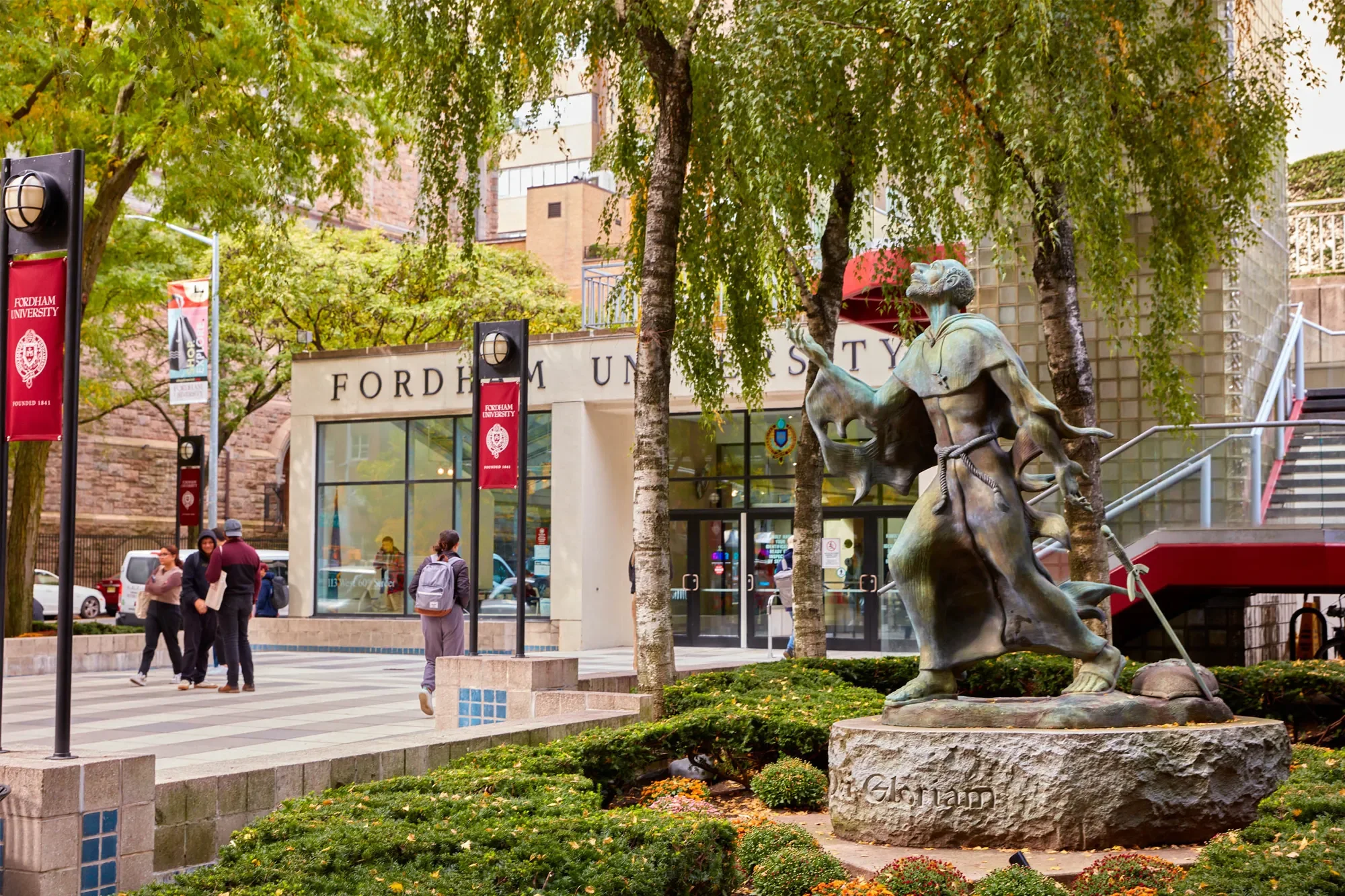Supporting Student Veterans Through Purposeful Work: Fordham University Builds Success with Its VA Work-Study Program
VA Work-Study Programs for Student Veterans: Fordham University’s Model of Success
At Fordham University, the Office of Military and Veterans’ Services (OMVS) has turned the VA Work-Study program into far more than a paycheck. It’s become a way for student veterans to find purpose, community, and professional growth while strengthening the university’s mission to serve those who’ve served.
“VA Work-Study programs play a fundamental role in supporting the operations of the OMVS, providing peer-to-peer support and other help to student veterans,” says Adrian Kochanowicz, Assistant Director of the Office. After several years working in veteran human services before joining Fordham, Kochanowicz immediately recognized how effective the model could be when universities commit to doing it right.
Supporting Student Veterans on Campus: Lessons from Fordham University
At its core, Fordham’s VA Work-Study program is simple: student veterans work on campus in roles connected to OMVS initiatives. Each participant’s position is tailored to their abilities and aspirations. “I ask them about their strengths, weaknesses, and the skillset they want to work on,” Kochanowicz explains. “I am flexible and want the best for students.” That flexibility allows participants to balance classes, family life, and part-time work without sacrificing academic performance.
For many, the program becomes a bridge between military service and civilian success. Kochanowicz notes that “the program is great because it focuses on all aspects of the student lifecycle.” Beyond earning income, students gain workplace experience, leadership skills, and confidence. They also contribute directly to the operations of OMVS—answering questions from new student veterans, organizing events, and helping peers navigate benefits.
The results speak for themselves. “The feedback has been positive—students are happy to work, learn new skills, and support the mission of the OMVS,” Kochanowicz says. The work creates a sense of belonging that can be difficult to find after military service. And while every veteran’s path is different, he emphasizes that “all students have diverse backgrounds, and all stand out in one way or another.”
Building Effective Student Veteran Services Through Work-Study Opportunities
For administrators considering expanding veteran engagement, Fordham’s experience offers practical insight. Kochanowicz acknowledges that the administrative process can seem daunting at first. “You need to be an approved worksite by the VA and be willing to find people to do work-study,” he says. “The amount of administrative work depends on the number of people one is willing to manage.” Yet once established, the program thrives through strong relationships and consistent leadership.
“The success of the program is predicated on the relationship between students and their supervisor,” Kochanowicz adds. When staff take time to mentor and listen, students thrive—and the office runs stronger because of it.
He’s quick to point out that VA Work-Study isn’t new, just underutilized. “It is underutilized because the administrative side of the program can be extremely demanding,” he says with a candid laugh. But Fordham’s approach proves that effort pays off. By embedding veterans into meaningful campus roles, the university has built a culture of service and support that benefits everyone.
Looking ahead, Kochanowicz’s vision remains steady: “To continue to do what we have always been doing—help student veterans.” For Fordham, that means sustaining a model that empowers veterans to grow, lead, and give back. For other institutions, it’s an invitation to imagine what could happen if more universities invested in their veterans the way Fordham does.
Transform your student veteran services—connect with MissionWise today.


